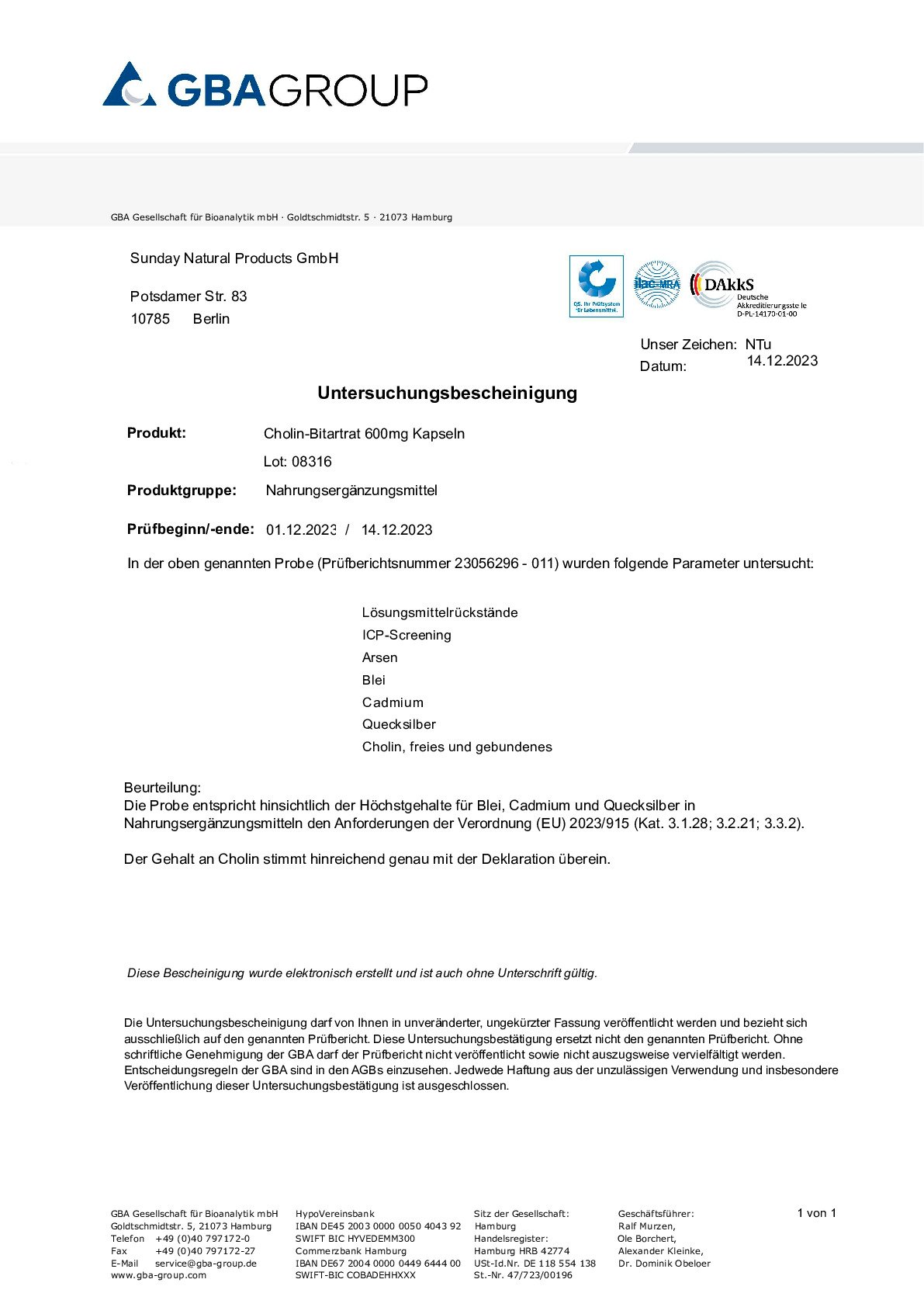Choline
Choline was long counted among the B vitamins as vitamin B4. Today, it is considered a semi-essential vitaminoid since the body can cover part of the requirement through self-synthesis from glutamine and ornithine.
Choline plays an important role in a number of bodily functions. In the fat metabolism of the liver, it supports its enzyme system and is an important component of bile secretion. It also has an important transport function in fat metabolism: as a component of VLDL (Very Low Density Lipoproteins), it transports fat and cholesterol from the liver to other bodily tissues that need these compounds. Choline also plays a role as a methyl group donor. Just like betaine, vitamin B12, folate and S-adenosylmethionine, it helps to regulate homocysteine levels.
According to the European Food Safety Authority (EFSA):
Choline contributes to:
- Normal homocysteine metabolism
- Normal lipid metabolism
- Maintaining normal liver function



















